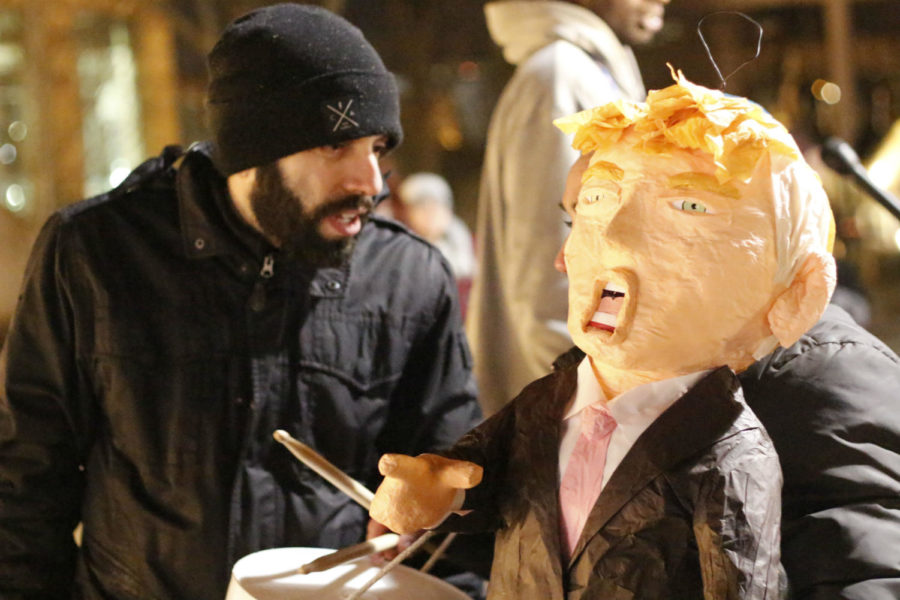Minimum wage sparks discussion in Iowa
April 27, 2016
Almost anyone who’s worked a part-time job in high school or college has experienced what has become a hot topic during this year’s presidential election cycle.
Minimum wage, the lowest amount an employer can pay an employee per hour, is mandated by federal law and is an issue that has been at the forefront of political debate this year.
Iowa is one of the few states in the Midwest with a minimum wage that mirrors the federal mandate: $7.25. For many individuals, working on federal minimum wage can make it extremely difficult to stay financially solvent.
“The first job I ever had [was the] summer after high school, I got a job at minimum wage: $1.60 an hour,” said 23rd District of Iowa Senator Herman Quirmbach. “Relative to what we have today at least, that summer I was the highest paid minimum wage worker in history.”
Quirmbach’s story holds true since in 1968, when he was 18, the $1.60 minimum wage was the highest paid wage in history and equate to roughly $10.34 in 2012 dollars, according to information from the U.S. Department of Labor.
Iowa, with a minimum wage that hasn’t been raised in nine years, borders Minnesota, Missouri and Illinois, which have all passed state minimum wages that are higher than the federal standard: $9.00, $7.65 and $8.25, respectively.
However, it’s still not enough, according to the Economic Policy Institute (EPI). The EPI says a full-time worker would need to earn $11.06 an hour in 2011 to keep a family of four out of poverty.
“I think if there were some serious discussion, a lot of voices would speak up,” Quirmbach said.
But for all the voices that speak up, there will be others with dissenting opinions.
“I make $8.25 [an hour],” said Jarid Maloney, senior in genetics. “I don’t think I would see a difference if a job is above minimum wage.”
Nebraska had a minimum wage increase that entered the record books in November 2014 after a state referendum. Initiative 425, when passed by voters, became a state statute that raised the state’s minimum wage to $9 beginning in 2016.
“I wish people would look around at popular referenda,” Quirmbach said. “Those are very conservative states [Nebraska and South Dakota], [but] when taken to the people, [they] are saying, ‘we need to raise the minimum wage.’ If we put it to the votes [of the people of Iowa], it would be approved,” Quirmbach said.
But like Maloney, there are people who don’t believe a wage hike is necessary. For some, it’s due to the value they put on lifelong careers.
“I believe that minimum wage jobs are meant to be transition jobs and that it devalues the college degree,” said Leah Swartzrock, junior in biology and an employee at Reiman Gardens. “Students who are working hard and earning a degree should have a higher pay and greater job placement compared to those who choose not to move on with their education.”
Right now though, the issue is a moot point for Iowans. The bill for an increase in Iowa’s minimum wage died in the house during this legislative session, so citizens will have to wait at least another year until they see a possible raise in the state’s minimum wage.

















